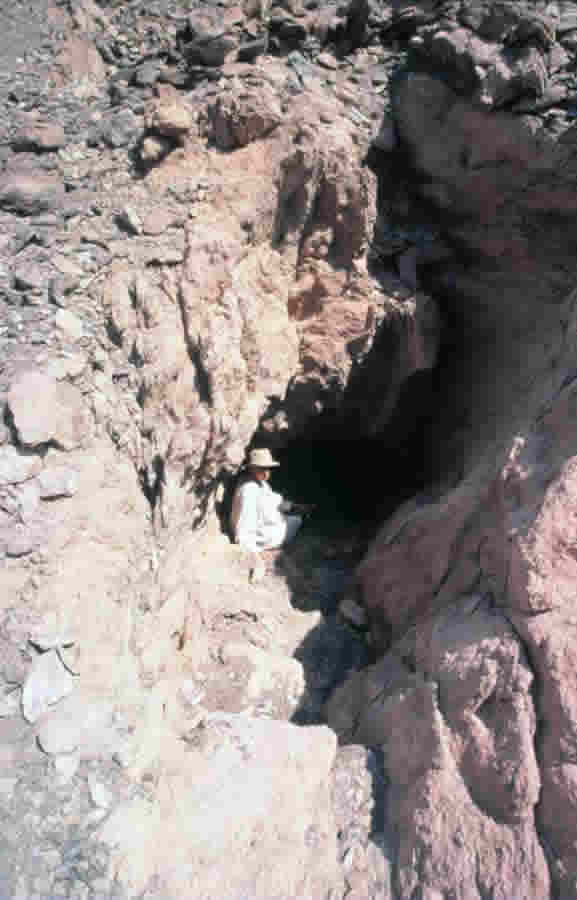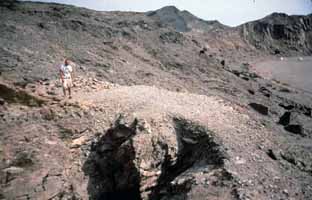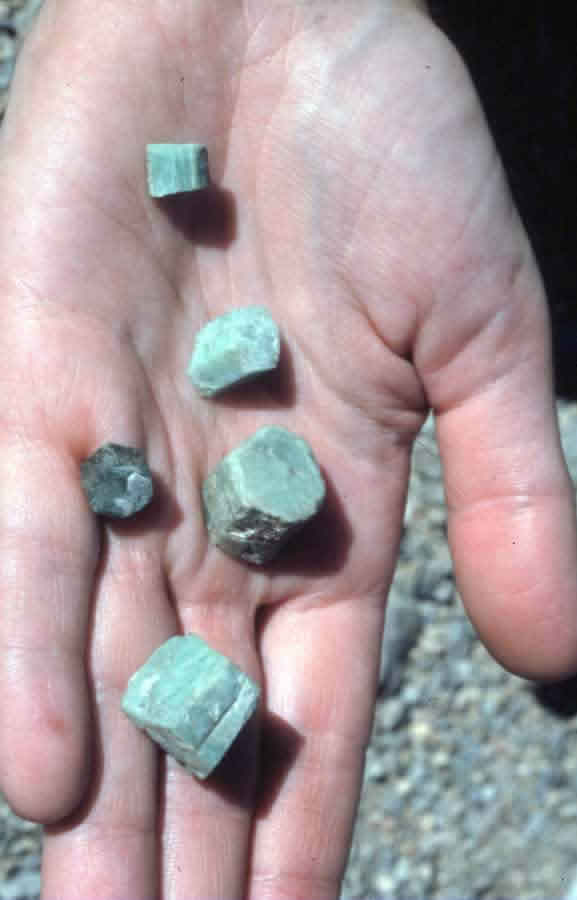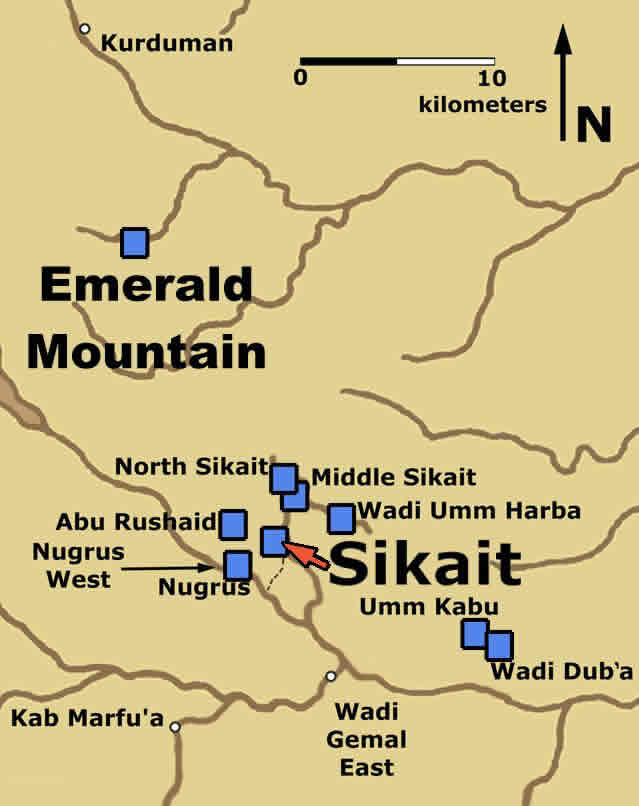

The entrance of an emerald mine

At the edge of a mine shaft

A handful of emeralds
The emeralds were mined within an area of 70 square miles, comprising at least nine separate communities collectively called by the ancient Romans "Smaragdus Mons" (indicated in blue on the map). Except for the settlement of Nugrus, which also possess some well-preserved buildings, none of the other mining sites is of the same magnitude of importance as the town of Sikait.
All along the hillsides of the wadi Sikait one finds the entrances to the ancient mine shafts. The first mines may have been opened in the Ptolemaic period, but the heyday of emerald mining was certainly in Roman times with many mining centres simultaneously active. After the Muslim conquest of Egypt in 641 AD the emerald mining continued, although with interruptions and on a smaller scale, well into the 14th century AD. The remaining mining activities then rapidly declined, as imports of emeralds from India and especially higher-grade stones from Columbia, after the Spanish conquest of much of South America, became more common.
